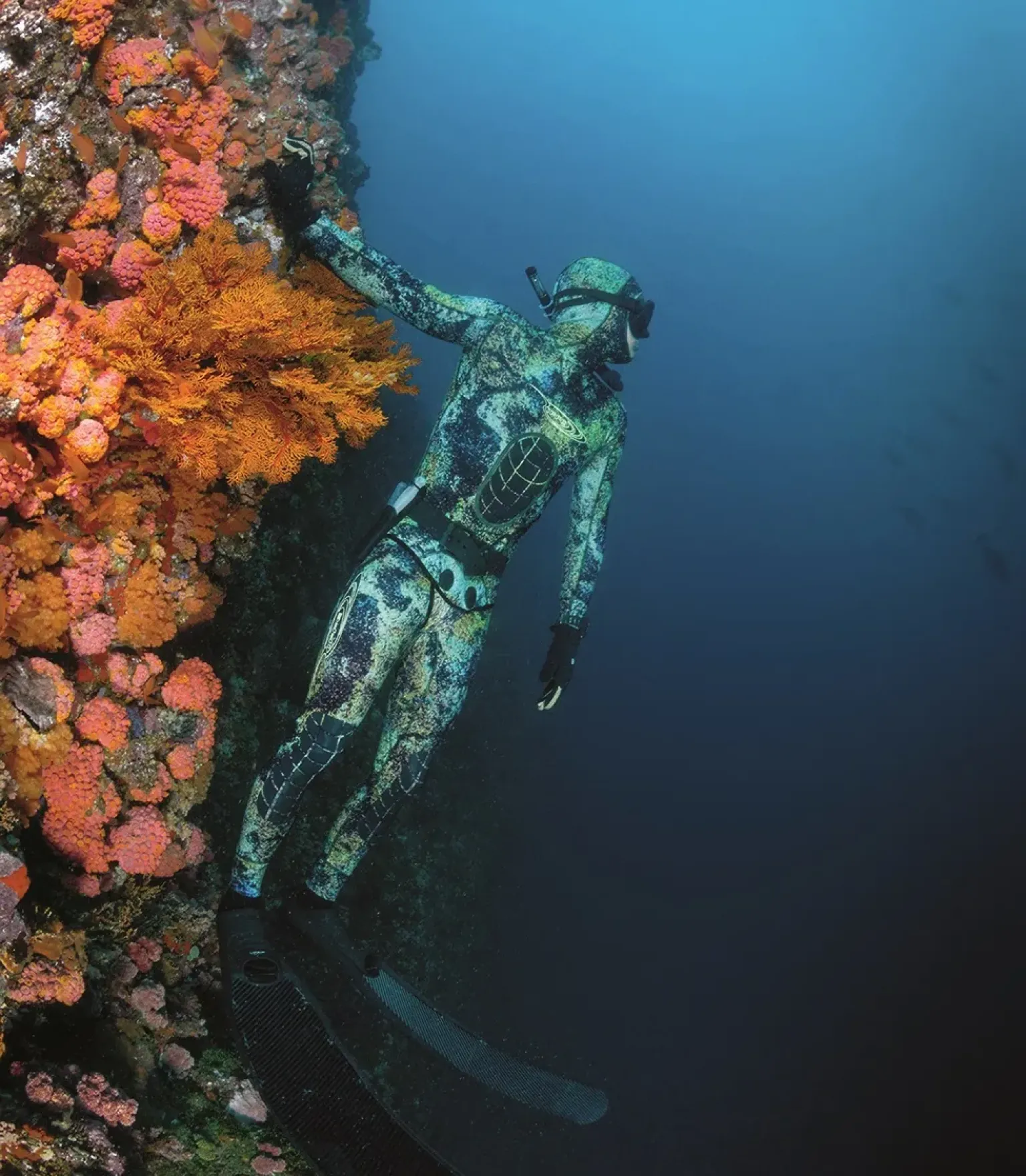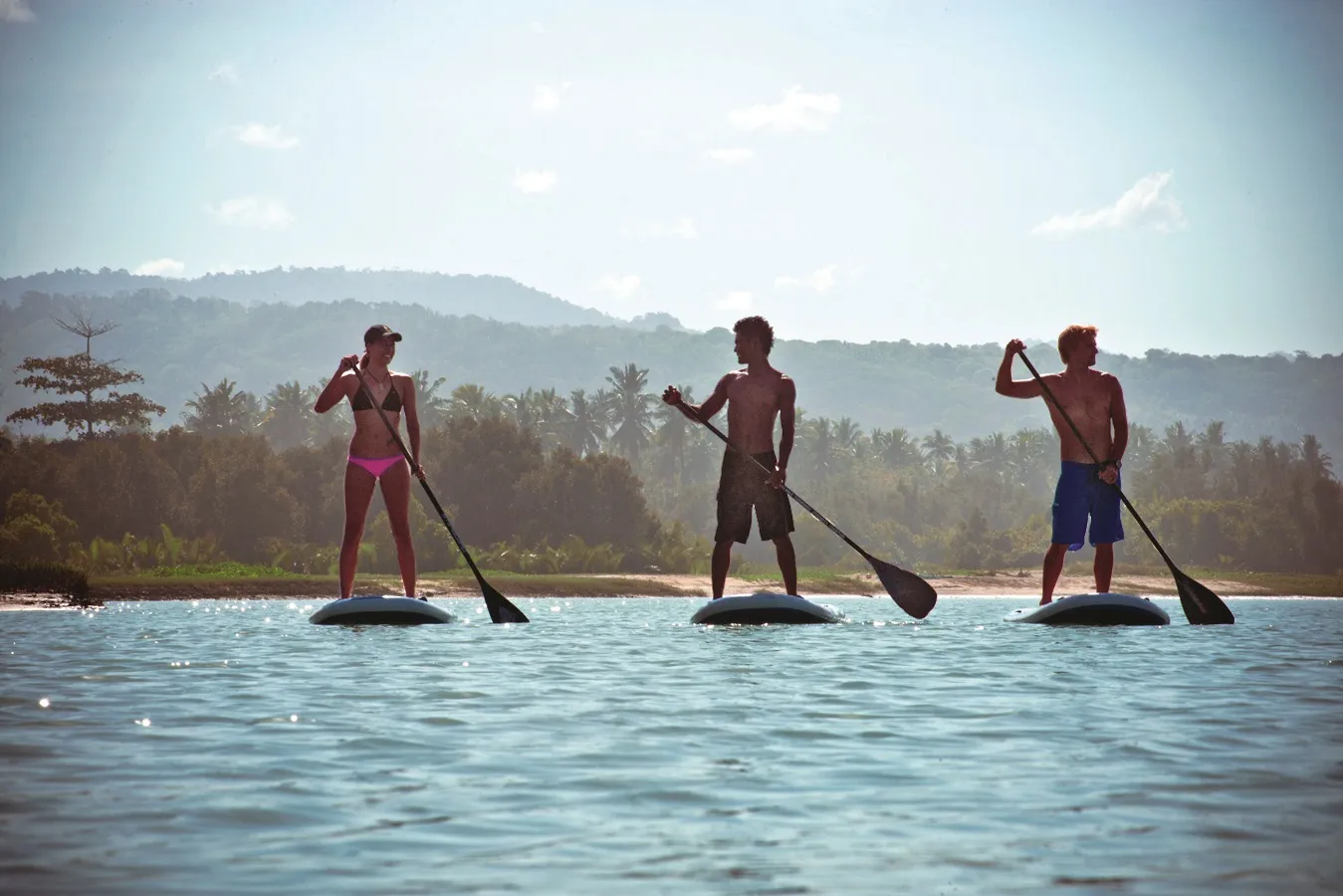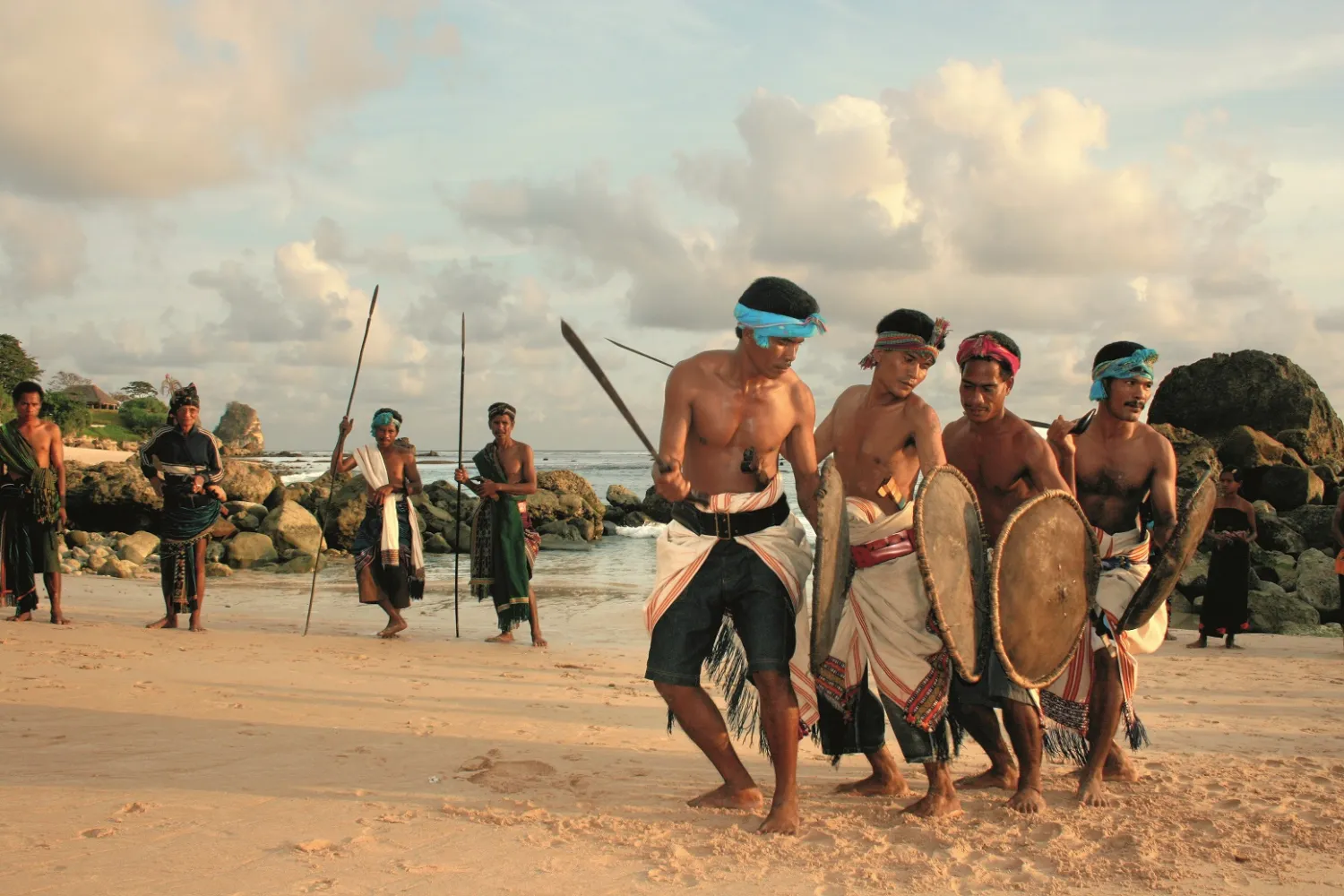They’re off to go snorkeling, taking a dinghy out to Nihiwatu’s limestone coral reef. I’m not one for water sports but Boathouse manager C.J. Kimmell assures me that the standup paddle-boarding trip on the Wanukaka River is a cinch.
He’s right. After a wobbly attempt at standing up, I sit cross-legged on my board as the lazy current makes its way through scenes of local life: a woman washing laundry, hanging the clothes on a bush to dry; two young boys carrying bundles of firewood on their backs. A three-foot-long monitor lizard edges along the shoreline before disappearing into the tall grass.
“Sometimes I can’t believe I’m here on this forgotten island in Indonesia,” says Kimmell later that day, over sundowners in the Nio Beach Club, the more casual of the resort’s two sandy-floored outdoor restaurants. Nihiwatu’s legendary wave breaks in front of us, 600 feet offshore. Kimmell gazes out at the vast swathes of reds, yellows and countless shades in between at play in the dusky sky. “It’s mythological.”
Sunrise can be equally otherworldly, I discover, when I set off the following morning with guide Maxi Deta on a two-hour trek to Rice Island. The mist is rising over the mountains as we hike the length of the beach, then veer up a steep, muddy path into the jungle. Deta is wearing flip-flops but ably navigates the terrain, taking my hand to keep me steady as we traverse a shallow stream, then cut into the woods where an elderly man collects betel nuts from the forest floor.
Farther on, past a farmer driving a water buffalo through a muddy paddy to aerate the soil, a half-dozen men are searching for a missing horse. For ages, Sumba’s sturdy native ponies were a valuable export, bartered with Chinese, Arab and later Portuguese traders. Today, they are still prized and included (along with costly water buffalo) in wedding dowries, as well as sacrificed at funerals to accompany the departed into the afterlife.
Finally, across a narrow bamboo bridge we reach the knoll known as Rice Island. From where I breakfast on papaya, melon and Indonesian fried rice or nasi goreng, overlooking a valley of lush green rice fields stretching like quilt-work to the sea, the view is serene.
Then Deta draws my attention to a clearing on a far-off hill where a few weeks earlier hundreds of horsemen from rival tribes battled with wooden spears in the sacred annual rite known as pasola. “We know pasola is dangerous but it’s the tradition in our culture,” he says. “This year there was not a lot of blood, so we will not have a good harvest.”









